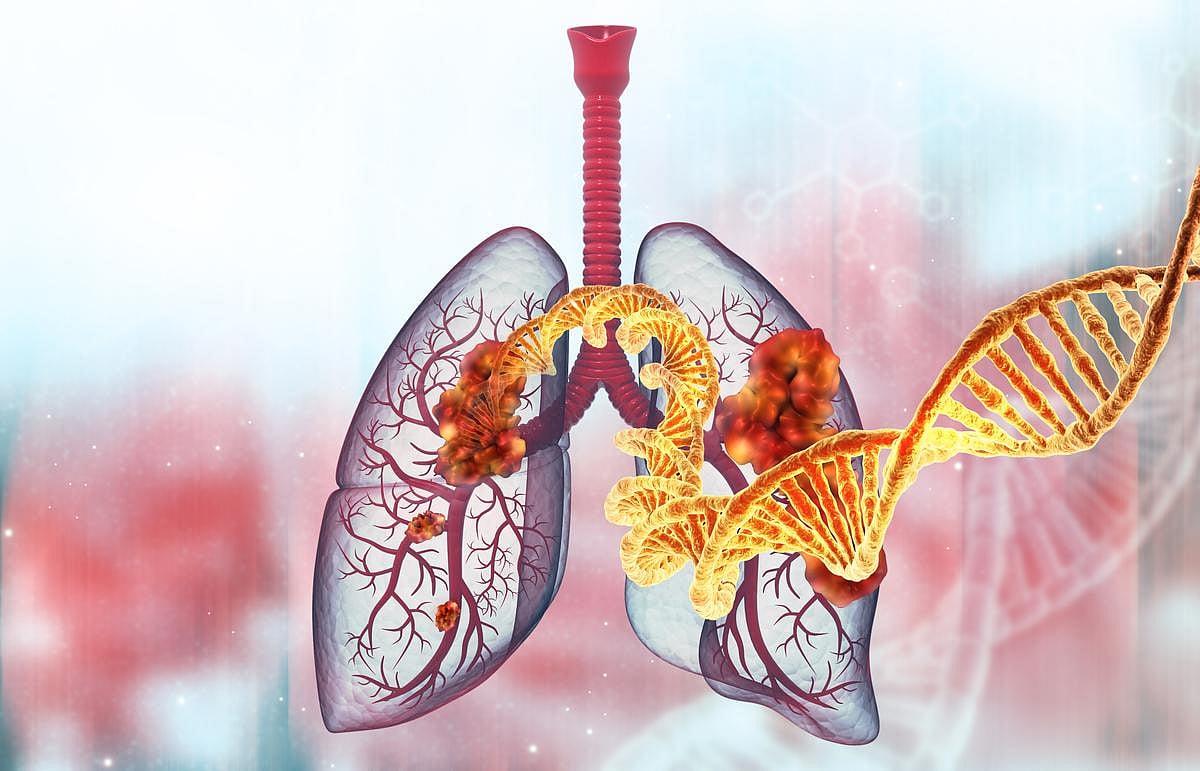Get Healthy!

- Dennis Thompson
- Posted July 8, 2025
Clash Of Drugs Impedes Lung Cancer Treatment, Lowers Survival
Two drugs used in lung cancer treatment appear to be tripping over each other, reducing patients’ chances for a cure, a new study says.
Corticosteroids are commonly prescribed to alleviate cancer-related symptoms in patients with non-small cell lung cancer, researchers said.
But these steroids appear to dampen the effectiveness of immunotherapy against lung cancer, researchers report in Cancer Research Communications.
High doses of steroids given before or during treatment with immune checkpoint inhibitors (ICIs), which are drugs that block cancer cells’ ability to evade the immune system.
“Steroids were the biggest predictor of why certain immunotherapies may not be effective, even when considering multiple other factors such as stage and progression of the disease,” said lead researcher Dr. Fumito Ito, an oncologist and immunologist with Keck Medicine of USC in Los Angeles.
It appears that steroids affect the development of T-cells, the hunter/killer immune cells that immune checkpoint inhibitors are meant to unleash, researchers said.
“Our findings reveal that steroids stop the body’s natural cancer-fighting cells, T-cells, from maturing,” Ito said. “This makes them unable to attack the cancer as vigorously as they usually would, leading to worse outcomes for patients.”
Ito noted that other research has indicated steroids may interfere with immunotherapy.
"We are one of the first," he added, "To pinpoint a probable cause and effect."
For the study, his team analyzed medical records for 277 patients with lung cancer who were treated with ICIs alone or in combination with other therapies. The University of Southern California treated 189 of the patients, while Roswell Park Comprehensive Cancer Center in Buffalo, N.Y., treated 88.
Steroids are frequently prescribed to cancer patients to help alleviate symptoms like fatigue, vomiting, brain swelling and lung inflammation, researchers said in background notes. They work by suppressing the immune system, which in turn reduces inflammation.
Results showed that ICI patients given steroids had a doubled to quadrupled risk of shorter remission, and a doubled to tripled risk of death.
Researchers also found that tumors shrank less among patients given steroids, compared to patients not on the drugs.
The team also found that steroids blocked circulating biomarkers — bits of cells in the bloodstream that signal when cancer is progressing.
“Without the presence of circulating biomarkers to inform our decisions, oncologists cannot treat the cancer as effectively and patients may miss out on the best treatment for their cancer,” Ito said.
Using lab mice, researchers found that steroids interfered with T-cell development following treatment with ICIs.
More study is needed to better understand this association, researchers said.
For some patients, steroids are necessary to manage cancer symptoms, Ito said.
“We know that steroids will continue to play an important role in lung cancer care, but it is important to understand their potential limitations,” Ito said. “Each patient should talk to their oncologist to make sure they have the best possible care plan tailored to their specific needs.”
More information
The University of Texas MD Anderson Cancer Center has more on steroids in cancer care.
SOURCES: USC, news release, July 7, 2025; Cancer Research Communications, July 7, 2025






